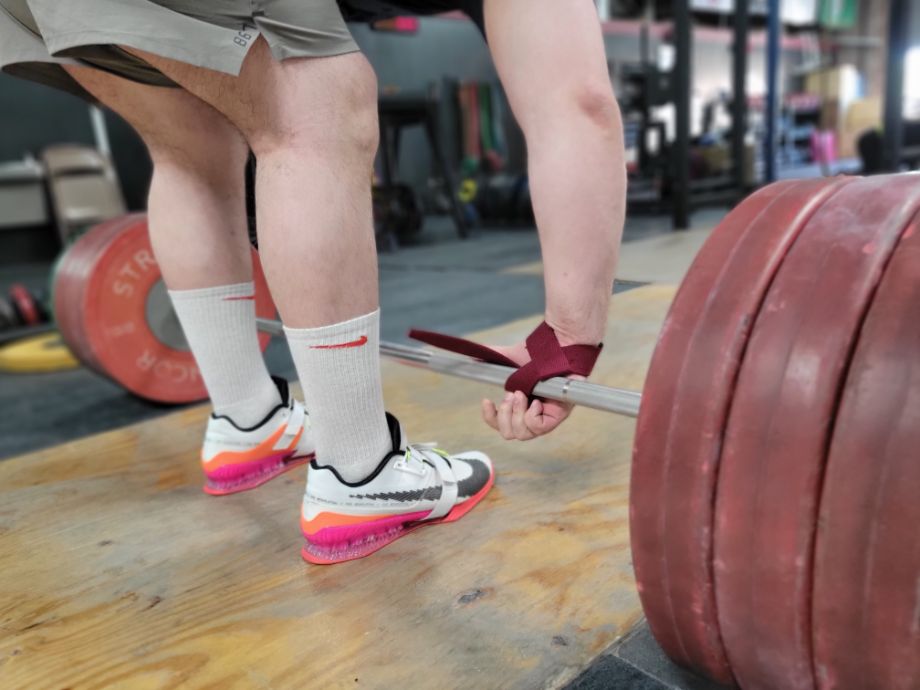We test and review fitness products based on an independent, multi-point methodology. If you use our links to purchase something, we may earn a commission. Read our disclosures.
Creatine is a powerful compound found mainly in the body’s muscles, where it’s stored as phosphocreatine and efficiently used for energy. Our bodies can make creatine from the amino acids methionine, arginine, and glycine, but we can also get it through our diet in high-protein foods like red meat, seafood, and animal milk.
Research has proven time and time again that creatine offers many benefits to muscle growth and post-workout muscle recovery, which is why its powers have been harnessed in supplemental form.
RELATED: Best Creatine
Today, creatine is one of the most popular and oft-studied supplements on the market. It is also considered the undisputed MVP for helping improve gym performance. But what about creatine and cardio? Does creatine offer the same benefits to those pursuing stamina and endurance through cardiovascular training? As a registered dietitian nutritionist (RDN), I’m here to help answer those questions. Let’s explore.
RELATED: How to Use Creatine
Medical disclaimer: This article is intended for educational and informational purposes only. It is not intended as a substitute for medical advice. For health advice, contact a licensed healthcare provider.
Creatine and Strength: Well-Documented Benefits
The effects of creatine supplementation on high-intensity workouts have been studied extensively. With creatine benefits so well-documented, it’s not surprising that creatine supplements are a staple among bodybuilders and other strength athletes. Their effects on anaerobic workouts like high-intensity interval training (HIIT), weightlifting, and resistance training have shown a lot of promise1 during research.

Creatine plays a significant role in energy metabolism, or the way that the body creates energy from the food we eat. It’s especially important for the anaerobic energy system. When we ask our system to operate with limited oxygen, like during anaerobic training sessions, we tap into our phosphocreatine stores2.
The phosphocreatine system kicks into gear during these high-intensity activities that only last for a short period—like one-rep maxes (1RM) or the 40-meter dash, for example. So, how does phosphocreatine translate to energy? Creatine is involved in producing adenosine triphosphate3, the energy necessary for skeletal muscle contraction.
Without ATP, our muscles can’t do what we ask of them. No ATP? No personal best in the 40-meter dash, no stealing third base, and no new one-rep max in the weight room.
Creatine and Cardio: Under-Researched, But Promising
Creatine is a well-known and extensively studied dietary supplement typically associated with improving anaerobic exercises like weight training, sprinting, and other activities that require short bursts of high-intensity output. However, the relationship between creatine and aerobic exercise is not as heavily researched. Still, there is some indication that creatine can support cardio performance—so don’t write it off just yet!
Aerobic activities like running workouts, swimming, and cycling depend on oxygen to sustain energy production. Aerobic exercise utilizes the oxidative phosphorylation pathway, unlike anaerobic exercise, which relies on ATP and creatine phosphate to produce energy. Without getting too technical, the oxidative phosphorylation pathway involves the transfer of electrons down the electron transport chain and establishing the proton gradient. ATP synthesis is still the end product, but creatine’s role is less clear.
RELATED: Does Cycling Build Muscle?
It has been proposed that creatine supplementation may help preserve glycogen by increasing intracellular creatine. Of course, it’s not nearly that straightforward—if only, right? There are different types of cardio, each tapping into various energy systems and responding to creatine differently. Let’s break it down in terms of running, the original cardio workout.
RELATED: Cardio Exercises for Beginners

Sprinting
Sprinting, while still a form of cardio, is largely anaerobic. The short bursts of intense output required to sprint tap into the creatine phosphate, or PCr, system and glycolysis. Recent research4 has demonstrated that short-term creatine supplementation may help benefit sprinters in terms of power output, speed, and recovery between intervals.
Extensive research has also shown that creatine helps build muscle mass, optimizing body weight and muscle strength. And if we look at the bigger picture, we can also apply this to other sports that involve periodic sprinting, such as soccer, basketball, and football.
RELATED: How to Build Muscle
Long-Distance Running
Long-distance endurance running, like marathon training, is purely aerobic cardio. It requires prolonged sustained energy production, relying predominantly on the oxidative energy system where creatine’s role is less evident. In fact, published research5 indicates creatine supplementation may have little to no effect on improving aerobic exercise.
RELATED: Tips for Running Long Distance
The metabolic demands of aerobic performance differ from those of anaerobic demands. Creatine’s effects on distance running and similar activities are less studied, meaning there’s little to go off of when applying it to your training plan. Still, creatine’s role in building lean muscle mass and promoting efficient recovery6 stands to improve athletic performance, possibly even miles at a time.

Middle-Distance Running
Middle-distance running, like the 800 meters, is a mix of aerobic and anaerobic efforts. It’s a challenging combination of endurance and sprinting, where creatine supplementation may have some relevance.
RELATED: Jogging vs. Running
For example, at the end of an 800-meter race, you’re running your heart out and wondering if you’ll make it to the finish line (ask me how I know!). Your body will call on those creatine stores in the final pushes to get one last surge across the finish line. The same applies to other mixed-intensity cardio sessions that call on improved speed and power during the sprint portions.
Other Cardio Sessions
Other forms of cardio, such as cycling and swimming, also have aerobic and anaerobic variations. For example, cycling can encompass steady-state or endurance rides and HIIT workouts. Similarly, swimming workouts can be classified as aerobic or anaerobic training. Threshold sets in the pool are geared towards endurance training, while interval training can appeal more to sprinters.
RELATED: HIIT Cardio Workout At Home
Like running, creatine may offer more to those training in short bursts of high-intensity effort. However, adding creatine to your supplement stack can help support muscle growth and recovery, ultimately benefiting your endurance training over time. Still, in the short term, a well-balanced diet featuring proper carbohydrates and lean proteins can help you maximize your workout.
RELATED: What Should My Macros Be?
Other Benefits of Creatine
Aside from its potential role in endurance exercise, creatine offers many other health benefits. It supports energy levels, helps build muscle mass, and improves recovery efforts. But when combined with a well-balanced diet and structured training program, it may also:
May Reduce the Risk of Dehydration
Some sources worry that creatine may cause dehydration since it triggers a movement of water into your muscle cells. However, those claims are not backed by research. Taking creatine supplements may encourage increased water retention7, which may cause weight gain over time but also help prevent cramping.
May Support Brain Function
Preliminary research8 points to a connection between oral creatine supplementation and improved brain health. Increased brain creatine content can offer benefits to cognition, depression, and traumatic brain injury management.

May Help Fight Fatigue
Creatine intake may help reduce fatigue associated with sleep deprivation and fatigue during exercise. There is a need for continued research, but some of the latest studies9 have shown a connection between creatine supplements and reduced mental fatigue.
RELATED: Can You Mix Creatine and Coffee?
May Help Maintain Stable Blood Sugar
While there is a need for continued research, current studies indicate10 that creatine can potentially promote changes in glucose metabolism. With regular exercise, creatine supplementation may enhance glucose transport into the muscle cells by type 4 glucose transporter (GLUT-4).
RELATED: How Long Does it Take for Creatine to Work?
Creatine and Cardio: Final Thoughts

Creatine supplements have been a staple for many athletes, taking their training to the next level. It’s a very common pre-workout supplement among those pursuing muscle growth through strength training and weightlifting. There are many forms of creatine, the most popular being creatine monohydrate.
RELATED: Best Pre-Workout With Creatine
While there is ample research regarding creatine supplementation and anaerobic exercise, the research regarding creatine intake and aerobic exercise is limited. Creatine can help improve muscle strength and recovery, translating to improved endurance through enhanced training sessions. However, in the short term, a well-balanced diet of the right carbs and lean proteins can help support training efforts and lean muscle mass.
Lastly, it’s essential to be aware of the creatine side effects that might accompany this product, such as creatine headaches. Before starting a new supplement, consider talking with your doctor and certified personal trainer.
Creatine and Cardio: FAQs
Should runners take creatine?
While supplement choices are a personal decision, creatine can offer specific benefits to runners. Runners may experience improvements in strength and stamina11 during high-intensity sprinting and endurance training with the use of creatine supplements.
Does creatine improve endurance?
Research on creatine and endurance is limited. However, creatine may help improve muscle strength and power output6, which can help runners maintain intensity for a more extended period.
Does creatine speed up metabolism?
Creatine can affect metabolism12, positively affecting energy expenditure and increasing fat loss.
Do you gain or lose weight with creatine?
It’s common for muscle cells to retain water7 during the creatine-loading phase, resulting in weight gain. However, that is typically short-lived, and creatine’s influence on metabolism and training efforts can then help support weight loss.
RELATED: Does Creatine Make You Gain Weight?
These statements have not been evaluated by the Food and Drug Administration. This product is not intended to diagnose, treat, cure, or prevent any diseases.
References
- Buford TW, Kreider RB, Stout JR, Greenwood M, Campbell B, Spano M, Ziegenfuss T, Lopez H, Landis J, Antonio J. International Society of Sports Nutrition position stand: creatine supplementation and exercise. J Int Soc Sports Nutr. 2007 Aug 30;4:6. doi: 10.1186/1550-2783-4-6. PMID: 17908288; PMCID: PMC2048496.
- Sahlin K. Muscle energetics during explosive activities and potential effects of nutrition and training. Sports Med. 2014 Nov;44 Suppl 2(Suppl 2):S167-73. doi: 10.1007/s40279-014-0256-9. PMID: 25355190; PMCID: PMC4213384.
- Saito S, Cao DY, Okuno A, Li X, Peng Z, Kelel M, Tsuji NM. Creatine supplementation enhances immunological function of neutrophils by increasing cellular adenosine triphosphate. Biosci Microbiota Food Health. 2022;41(4):185-194. doi: 10.12938/bmfh.2022-018. Epub 2022 Jun 17. PMID: 36258765; PMCID: PMC9533032.
- Glaister M, Rhodes L. Short-Term Creatine Supplementation and Repeated Sprint Ability-A Systematic Review and Meta-Analysis. Int J Sport Nutr Exerc Metab. 2022;32(6):491-500. Published 2022 Aug 30. doi:10.1123/ijsnem.2022-0072
- Hall M, Manetta E, Tupper K. Creatine Supplementation: An Update. Curr Sports Med Rep. 2021;20(7):338-344. doi:10.1249/JSR.0000000000000863
- Wax B, Kerksick CM, Jagim AR, Mayo JJ, Lyons BC, Kreider RB. Creatine for Exercise and Sports Performance, with Recovery Considerations for Healthy Populations. Nutrients. 2021 Jun 2;13(6):1915. doi: 10.3390/nu13061915. PMID: 34199588; PMCID: PMC8228369.
- Powers ME, Arnold BL, Weltman AL, Perrin DH, Mistry D, Kahler DM, Kraemer W, Volek J. Creatine Supplementation Increases Total Body Water Without Altering Fluid Distribution. J Athl Train. 2003 Mar;38(1):44-50. PMID: 12937471; PMCID: PMC155510.
- Forbes SC, Cordingley DM, Cornish SM, et al. Effects of Creatine Supplementation on Brain Function and Health. Nutrients. 2022;14(5):921. Published 2022 Feb 22. doi:10.3390/nu14050921
- Kreider RB, Stout JR. Creatine in Health and Disease. Nutrients. 2021;13(2):447. Published 2021 Jan 29. doi:10.3390/nu13020447
- Solis MY, Artioli GG, Gualano B. Potential of Creatine in Glucose Management and Diabetes. Nutrients. 2021;13(2):570. Published 2021 Feb 9. doi:10.3390/nu13020570
- Cooper R, Naclerio F, Allgrove J, Jimenez A. Creatine supplementation with specific view to exercise/sports performance: an update. J Int Soc Sports Nutr. 2012 Jul 20;9(1):33. doi: 10.1186/1550-2783-9-33. PMID: 22817979; PMCID: PMC3407788.
- Forbes SC, Candow DG, Krentz JR, Roberts MD, Young KC. Changes in Fat Mass Following Creatine Supplementation and Resistance Training in Adults ≥50 Years of Age: A Meta-Analysis. J Funct Morphol Kinesiol. 2019 Aug 23;4(3):62. doi: 10.3390/jfmk4030062. PMID: 33467377; PMCID: PMC7739317.
Further reading

We gathered interesting facts about the practice of yoga, popularity, and health benefits. Learn more about the benefits of yoga and why people practice this form of exercise. Read more

This is one EPIC Garage Gym. Every detail was thought of including having everything match. Enjoy the build! Read more

Looking for the best protein chips to add to your snack cabinet? Our team tasted a bunch so you don’t have to. Read more

Tired of a tight groin holding you back from performing at your best? Stay loose and limber with these trainer-approved groin stretches. Read more

